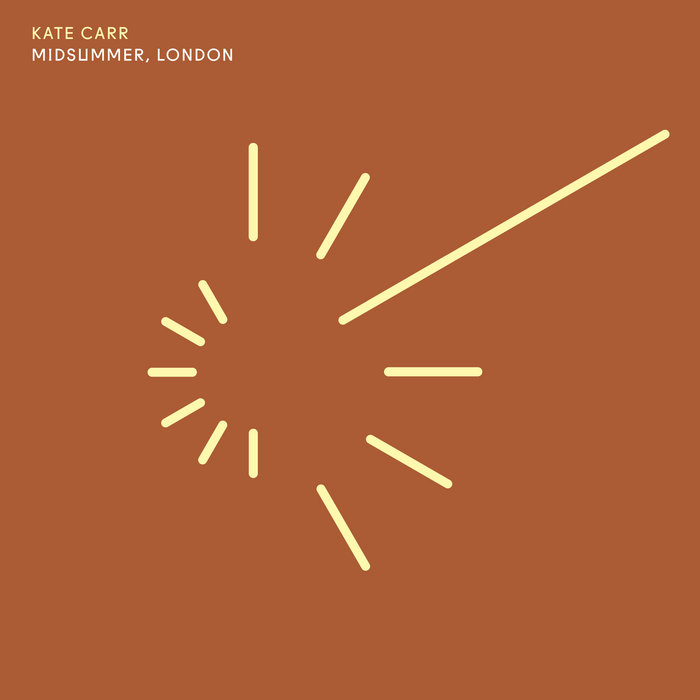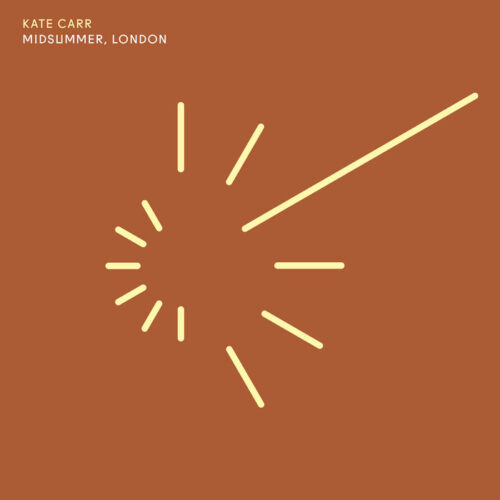Kate Carr’s new album is a ‘sonic transect’ across London. She slices the city from her Loughborough Junction home out west to Staines and east to Slade Green, travelling on public transport and recording as she goes. Her work is based around field recordings, which morph into electronic tracks, distortion emerging across the stereo spectrum from bus and train noise, and blending back into the sounds of the places she visits.
Snatches of music find their way into the album – for example, an unexpected burst of drumming on a track called ‘Crossing the river: I am getting hungry and lots of people are talking about food. Also Jesus loves me.’ It mixes with speech, conversation close at hand, announcements further away, and a man addressing the street with the titular message about Jesus. The tracks on Midsummer, London all have bluntly explanatory titles that provide context for what we’re hearing, but the reality is abstract, unpredictable and weirdly beautiful.
Unexpected moments of calm are bookended by passing trains. Stasis manifests during the white noise and gamelan drill notes of ‘Roadworks in Shepperton’. The Thames bubbles around the sound of industrial loading… and a dog during ‘I met a dog in Hampton who lived on a boat near a gravel recycling plant.’
Carr’s field recordings form part of an impressive oeuvre. She has forty-two albums available on Bandcamp, including Midsummer, London, the latest to conjure place with a skill few can match. The idea that music is intrinsically connected to the sounds that surround us, rather than separated from them in a performance context where everything else is filtered out, remains radical. Our lives are sound, but we rarely listen. Carr filters in everything we filter out, and finds infinite variety in the things we discard.
As a record of what living in South London actually feels like, Midsummer, London has few parallels. As such, it is soothingly familiar, even when the sounds of, for example, ‘The bins being emptied somewhere near Twickenham’, are somewhat triggering. It is also entirely new, because we have heard but not heard everything. Music is there in its socialised form – a station piano in Lewisham, a woman singing in a food court – and in snatches of conversation. It is there, too, in Carr’s electronic additions, expertly woven into the picture as though playing in her own head. And it is there in the sounds of the world turning around us, the true music of the spheres.



